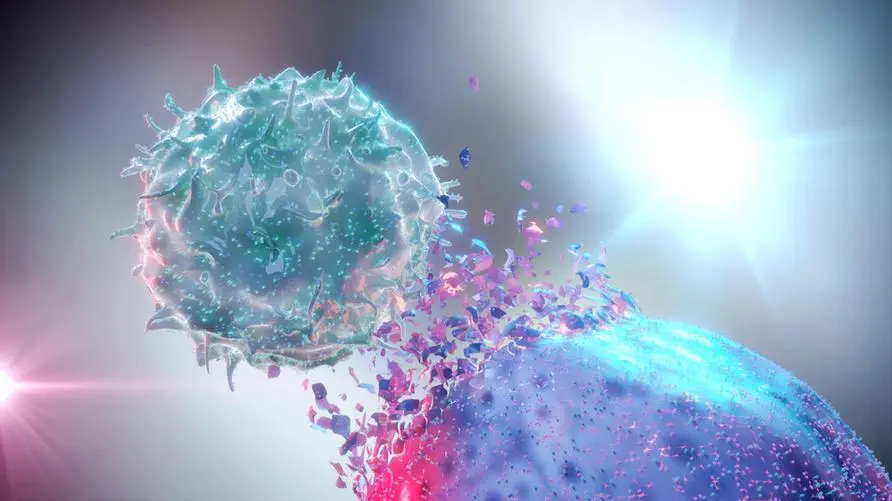Are mobile phones causing easy distraction and overeating? Expert: You are just escaping reality! 4 tips to improve concentration

Are mobile phones and social media distracting people? Unhealthy internal triggers
Are you having a healthy day today? If you are having an unhealthy day, who do you think caused it?
People usually blame our mobile phones for distracting us and wasting time watching TV series and watching movies; we blame the owner of the Salty Crispy Chicken for staying open too late so that we can find something to eat during our midnight snack; we blame the business owners for being too unscrupulous , arrange too much workload, leaving employees exhausted after work and unable to exercise.
Yes, when we engage in time-wasting, health-damaging distractions, we tend to find an excuse of “I’m the victim” so that we don’t have cognitive dissonance and indulge in distractions or indulgences. Our brief pleasure.
Nir Eyal, a professor at Stanford University, pointed out that people think that the problem lies in external objects that attract us to distraction, so we tend to blame television, junk food, social media, cigarettes, electronic toys, and even beauty and drugs. But these are only superficial sources of distraction, and external objects are just the outlets we find to escape reality:
“Most of us don’t want to admit the uncomfortable fact that distractions have always been an unhealthy way to escape reality. How do we deal with our own problems? The inner triggers of discomfort can determine whether we pursue healthy, gravity-driven behaviors or counterproductive distractions.” (See Nir Eyal, “The Attention Protocol,” Indistractable: How to Control Your Attention and Choose Your Attention. Life)
Nir Eyal believes that there are roughly four intrinsic reasons why we engage in various distractions and unhealthy behaviors.
First: Boredom. People prefer action to thinking. The untrained brain will look for ways to solve problems. Just look at the top 25 website traffic rankings and you will know that everyone’s attention is spent on shopping, gossip, and news. and easy-to-use social software.
Second: Negativity bias, that is, the intensity of perception of negative news is much greater than that of positive news. This is of course an evolutionary survival mechanism that is beneficial to human beings, but negative news (such as what you see during the recent elections every two years) Politician profiling and various fake news) will attract more attention, and it will also make it easier for you to spend a lot of time following “unnutritious” news to satisfy your unfounded curiosity, and in the end get nothing.
Third: Rumination thinking, the habit of constantly chewing on what you have done or what others have done to you, and this rumination is usually presented in the form of self-criticism, although self-reflection will help you make better decisions next time. Good decision-making, but excessive self-criticism will create negative thinking inertia, which is not good for physical and mental health.
Fourth: Hedonic adaptation. Most of the things we think will make us happier actually don’t make us happier. We may just be chasing the intense neural stimulation at the moment of dopamine release, only to discover that there is no such thing as eternal happiness until we reach our goal.
4 tricks to practice to reduce the frequency of distraction and improve the efficiency of concentration use
To a certain extent, the goals people pursue, such as passionate love, spiritual loftiness, the pleasure of obtaining better material enjoyment, and even the pleasure of success, are only temporary-the brain’s default setting is dissatisfaction and discomfort. From a positive perspective, it allows people to pursue progress, while from a negative perspective, they are forever bound by the shackles of the pursuit of happiness. Zhuang said: If there is no limit, it will be too late! Using a limited life to pursue unlimited desires, how is it possible that concentration and creativity will not be exhausted?
That being the case, is the only way to get rid of the distracting inner temptations is to see through the mortal world and escape into Buddhism? Things are not so hopeless.
Nir Eyal believes that we don’t have to keep telling ourselves “not to think about a certain impulse” because prohibition strategies often backfire by making people have a stronger desire for that thing. Think about it, how many people have failed because they thought “not allowed to eat starch” during their weight loss period? He compiled four tips to help reduce the frequency of distractions in daily life and better use concentration:
Catching war criminals before getting distracted: For example, I often start browsing online photos, browsing various web pages and news on Google before going to work. The name is collecting information, but in fact it is because I feel deeply about the difficult work. Anxiety, restlessness, find the real triggering event before distraction occurs.
Write to relieve distractions: The power of words is sometimes greater than imagined. Writing is regarded as a form of therapy in various fields. Record your current feelings and how you feel about distractions, just like with The magical thing is that the more objectively you can observe yourself from the perspective of a third party, the more distracting and anxious emotions you will gradually weaken.
Think from an exploratory perspective: Observe what physiological signs you have before you are distracted, such as shaking or feeling uncomfortable in your stomach, and then observe how you feel after these feelings disappear - it sounds like a tongue twister, in short, it is to observe your present moment. Physiological reaction, focus on the matter of “observation”, the principle is like paying attention to your own breathing.
Pay attention to time junctions: Junction points refer to the time when you switch from one thing to another in life. The most common phenomenon is playing with your mobile phone when stopping at a traffic light, or feeling irritated because the Internet is too slow. To solve the problem, you can refer to the “Ten Minute Rule” and tell yourself if you still want to do it after ten minutes, just do it. The interesting thing is that most of these thoughts and desires have dissipated after ten minutes.
Just like “impulse surfing” in psychology, when you feel that you are about to be controlled by impulse or distraction, first be aware of the current feeling and ride the waves of feeling like surfing. There is no need to push it away or restrict yourself from cooperating. It is precisely “He is strong enough to be strong, and the breeze blows over the mountains.” Through repeated practice, you can increase your mental strength to not surrender to distractions, and relieve the inner triggers that really cause distracted behavior.
Further reading:
Still can’t concentrate for 10 minutes? ADHD can occur in adults too! Risk of depression rising?





